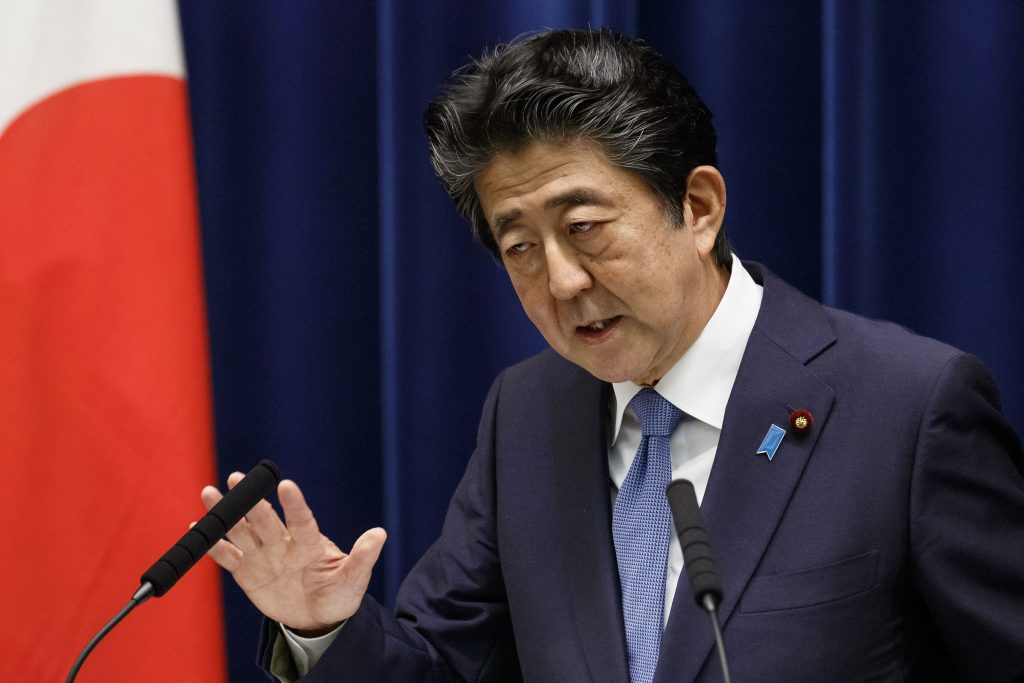
- ARAB NEWS
- 31 Jul 2025

Prime Minister Shinzo Abe appears reluctant to heed growing calls for revising Japan’s legislation for tackling the coronavirus epidemic, due to concern that he could be grilled on the government’s response to the epidemic if the Diet, the country’s parliament, is convened.
“I have no plans to call an extraordinary (Diet) session,” Abe told a meeting with some cabinet ministers in late June, according to informed sources.
An extraordinary session is held almost every autumn, allowing lawmakers to deliberate pending bills and supplementary government budgets for dealing with major natural disasters.
The government initially planned to have the Diet discuss revisions to the legislation at an extraordinary session this autumn. It started to work in line with this plan, immediately after it declared a state of emergency over the coronavirus epidemic in April, under the revised anti-influenza law, part of the legislation.
The plan partly reflected frustration among local governments that the revised anti-influenza law gives them no authority to issue business shutdown requests with binding power, while leaving unclear the border between the roles of the central and local governments in the fight against the coronavirus.
Officials from the Cabinet Secretariat, the health ministry and the Cabinet Legislation Bureau were considering new systems to allow the central government to supervise local public health centers directly and to pay compensation for any side-effects of coronavirus vaccines, sources familiar with the matter said.
They were looking to amend related laws including the revised anti-influenza law, the infectious disease law, and the quarantine law as a package, the sources said.
But since the state of emergency was fully lifted in late May, the Abe administration has been increasingly slow to proceed with the plan to revise the coronavirus-related legislation, in the face of criticism for its response to the epidemic, including the unpopular distribution of cloth face masks to households and the “Go To Travel” subsidy program for tourists, aimed at helping the tourism industry, battered by the epidemic.
It seems certain that Abe would bear the brunt of opposition attacks if a Diet session started for revising the coronavirus legislation, observers said.
In the meantime, a Cabinet Secretariat official said, “We can’t afford to work on law revisions at a time when coronavirus infections are increasing across the country now.”
On July 19, Chief Cabinet Secretary Yoshihide Suga said that a revision to the coronavirus legislation would be a challenge only after the current epidemic is over. He suggested that the government currently plans to make full use of existing laws to deal with the epidemic.
At a press conference on Monday, Suga reiterated the government’s reluctance to revise the legislation any time soon.
A law revision to punish those who fail to comply with stay-at-home or business shutdown requests by authorities “would restrict private rights and involve problems such as compensation for suspending businesses,” the top government spokesman said.
Tackling the epidemic with the existing legislation is seen causing complicated situations, though.
In late July, economic revitalization minister Yasutoshi Nishimura suggested that, under the infectious disease law, the government may name restaurants where infections have occurred when infection prevention guidelines have not been observed.
But Soichiro Takashima, mayor of the southwestern city of Fukuoka, pointed out in a teleconference with Nishimura that local governments “cannot move without the consent of businesses,” as the same law requires consideration for the protection of personal information.
“We now need clear instructions” from the Abe administration on possible coronavirus law revisions, a government official involved in work to draw up law revisions said.
JIJI Press